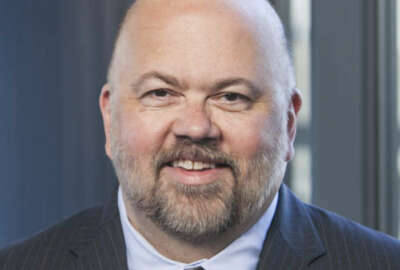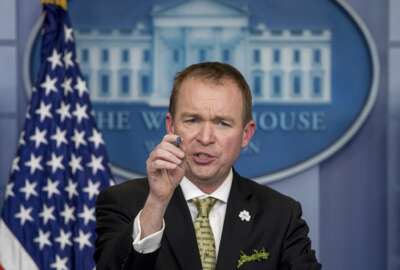

Heidi Heitkamp (D-N.D.), the ranking member of the Senate Homeland Security and Governmental Affairs Subcommittee on Regulatory Affairs and Federal Management, said...
The seeds of civil service reform may be taking shape in Congress this year, but senators are slowly and deliberately searching for ideas.
The Senate Homeland Security and Governmental Affairs Subcommittee on Regulatory Affairs and Federal Management is putting civil service reform in the front seat of its agenda this year, through a series of listening sessions and fact-finding hearings on federal personnel, hiring, performance management and other topics.
“We are not any where near coming up with the big rolling package, but as time goes on, this will be the focus in this Congress,” subcommittee Ranking Members Heidi Heitkamp (D-N.D.) told members of the Senior Executives Association May 11, one of the last few days of Public Service Recognition Week.
The subcommittee spent much of the previous year focused on regulatory reform, she said. But she and subcommittee Chairman James Lankford (R-Okla.) will spend the majority of this year listening to federal employee groups, labor unions, leaders and the rank-and-file for their thoughts on civil service reform.
They’re interested in ideas that attack the root causes of some of the most challenging problems facing the federal workforce.
Leadership is one of those issues. Heitkamp said she knows from experience: the best accountants and auditors often don’t make the best managers, and not every high-performing employee is destined for federal leadership.
“Those skill sets that we have that get us attention and get us promoted are not necessarily the skill sets that people want,” she said. “We need to, number one, train people when we ask them to take on those duties and responsibilities. We need to make people comfortable with conflict and comfortable with management of people.
Heitkamp introduced the Federal Supervisor Training Act in the last Congress. It champions best management practices and expanding training for supervisors. She’s working on the bill again this year.
The Senior Executives Association ( SEA) is thinking about this idea even more broadly. The organization suggests agencies re-think the concept of leadership in general.
“We believe that leadership should be a profession within the federal government and that it is something that should be taught and should be cultivated at the earliest point of someone’s career,” said Bill Valdez, SEA’s president.
It’s the main focus of a new strategic direction SEA is launching this year with the National Academy of Public Administration. The goal, Valdez said, is to facilitate conversations that many senior executives have told him they haven’t been able to have within their own agencies and among their own colleagues.
“We have what appears to be a generational shift in what it means to be a leader in the federal government,” he said. “The original purpose of the Civil Service Reform Act from [19]78 was to create a cadre of elite leaders, the Senior Executive Service. In the 40 years since that legislation was passed, something’s happened. We’ve created a corps of senior leaders that are more technocrats, that are more super-managers. When I talk to the membership of SEA, what I hear all the time is that ‘I feel constrained within silos. I feel constrained within my agency. I’m not able to meet with my peers. I’m not able to think big thoughts, to contribute to the greater good.'”
Heitkamp said she and the subcommittee will also focus on attracting and retaining millennials to the federal workforce.
“We’re looking at different ways to provide flexibility in hiring, that’s a big thing for us,” she said.
She and the subcommittee members are specifically looking for frustrations from federal employees and managers, and they want more ideas and suggestions for addressing them.
“There are a lot of people who want to do things to do you,” she said. “Sen. Lankford and I want to do things with you, and that is earnest and honest and I know if James were here he’d say exactly the same thing.”
In a similar vein to the ideas described in the Trump administration’s plan for reorganizing government and restructuring the federal workforce, Heitkamp also wants to hear about unnecessary processes or burdensome requirements.
The subcommittee has held two civil-service related hearings so far this year.
“What do we make you do in the name of accountability that has no result for accountability? Every day, I bet you do stuff that doesn’t add any value to anything, but somewhere along the line someone told you to do it. Right? You just get out the paperwork, check the box and move on,” she said. “We want to know about that, because those things can create enormous frustrations.”
Copyright © 2024 Federal News Network. All rights reserved. This website is not intended for users located within the European Economic Area.
Nicole Ogrysko is a reporter for Federal News Network focusing on the federal workforce and federal pay and benefits.
Follow @nogryskoWFED


